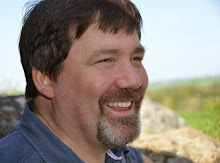
The term "Lollard" may have meant "babbler" or "mumbler" and was probably a pejorative comment on the preaching of this third stream Medieval movement.
The Lollards were the English followers of the reformer and Bible translator John Wycliffe. By the end of the C14, due to extensive evangelism and teaching in the midlands and south of England, Lollards maintained a number of congregations and enjoyed considerable support among the artisan and middle classes.
In 1395 Lollards submitted a document to Parliament summarising some of their beliefs and complaints. In particular, they emphasised the centrality of personal faith in Christ, opposed hierarchy in the church and rejected transubstantiation, clerical celibacy and the church's temporal power. In addition, they rejected prayers for the dead, pilgrimages and images of the saints. They saw the primary duty of priests to preach and teach the word of God and wanted the Bible to be made available in the common tongue for all believers.
As an aside, there is debate over the extent to which Geoffrey Chaucer represented or even endorsed Lollard ideas in his Canterbury Tales. He was certainly familiar with the movement.
Although outlawed as a movement in 1401, and despite many leaders being burned or hanged, Lollardry continued to spread. When the Reformation got under way a century later, much preparatory work had already been done in England. Lollard ideas were already part of the English consciousness.
A season of revival in the C16 in London, East Anglia and the Chilterns added to the movement's strength and influence.
The Lollards were the English followers of the reformer and Bible translator John Wycliffe. By the end of the C14, due to extensive evangelism and teaching in the midlands and south of England, Lollards maintained a number of congregations and enjoyed considerable support among the artisan and middle classes.
In 1395 Lollards submitted a document to Parliament summarising some of their beliefs and complaints. In particular, they emphasised the centrality of personal faith in Christ, opposed hierarchy in the church and rejected transubstantiation, clerical celibacy and the church's temporal power. In addition, they rejected prayers for the dead, pilgrimages and images of the saints. They saw the primary duty of priests to preach and teach the word of God and wanted the Bible to be made available in the common tongue for all believers.
As an aside, there is debate over the extent to which Geoffrey Chaucer represented or even endorsed Lollard ideas in his Canterbury Tales. He was certainly familiar with the movement.
Although outlawed as a movement in 1401, and despite many leaders being burned or hanged, Lollardry continued to spread. When the Reformation got under way a century later, much preparatory work had already been done in England. Lollard ideas were already part of the English consciousness.
A season of revival in the C16 in London, East Anglia and the Chilterns added to the movement's strength and influence.
